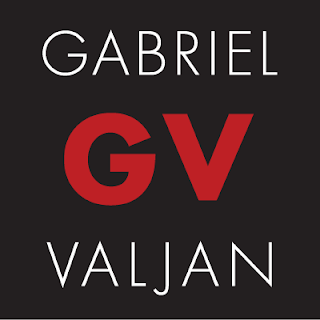Hi, my name is Gabriel. I’m a word nerd, and a repeat offender with the words THAT and HAD.
Criminal Minds [Chorus]: Hello, Gabriel.
Today, I’d like to talk about my dysfunctional relationship with these two words that (oops, did it already) so plague my work that (d’oh) if it were not for Microsoft’s Edit-Find, my manuscript would be infested with these two blights. Once upon a time I had (eeks) identified 700 instances of THAT in a manuscript. Edit Find Next ignited two bonfires.
A while back, Career Authors posted an article on ‘crutch words’ and Hank Phillippi Ryan (had) created a ‘hit-list’ of words that writers ought to delete on sight. The inference was that these words were specimens of lazy and ineffective writing, and authors could replace them with better, stronger, faster elements of speech, as if prose could become bionic through ruthless editing.
Yes and No.
My problem isn’t that my word-hoard is deficient.
My problem is that my repeat offenders are essential workhorses.
Confession or alibi—you decide, my friends.
The confession. My eyes see THAT as little fruit flies onscreen. When I type, I hear words as I lay them down, and THAT echoes in my ear, especially when I have a legitimate double-tap of THAT, such as: ‘I can see that that is a problem.’
Grammar autopsy: The first ‘that’ is a conjunction; the second one, a demonstrative pronoun.
Contemporary style veers towards the economical, and advises writers to drop one ‘that’ unless you risk ambiguity. Where I trip over THAT is when it signals subordination:
I think THAT…
I believe THAT…
Or, the one that flails like a Muppet, ‘He said THAT.’
The rule of thumb is subordinate in exposition, but lose THAT like a bad date in dialogue.
My relationship to both HAD and THAT stems, I believe, from a rusty wheel inside my head. A linguist friend said whatever your mother tongue, a gear exists inside your brain. It is embedded no matter what.
English was not my first language, and though I (had) ‘lost’ my mother tongue through divorce, I’m convinced that my wheel has periodic malfunctions, but guess what? It is impossible not to use QUE (that, in Spanish) when you do subordination.
Pienso que...
Creo que…
Both phrases translate to, ‘I think’, but the second one is closer to, ‘I believe.’
THAT is necessary in Romance and Germanic languages. It cannot not be used. And then there is the other matter of the use of the subjunctive mood that has limited use in English.
Which brings me to HAD, my other darling on the chopping block.
Of past tenses, English and Spanish have four. German and Italian have two, and French has five. Latin, the language I took to avoid speaking a language because of my flawed hearing, has two. As an aside, I believe that we should learn the past tense of languages first because people often talk to each other about things that happened in the past before they talk about what is happening in the present.
The origin of my fetish for the word HAD is rooted in Latin’s pluperfect tense. A common hurdle in Latin is to distinguish between habitual and continuous action—the imperfect tense—from completed action. English has this weird thing where the present tense could be continuous or future action. The word HAD is essential for translation from Latin to English to convey a completed action.
What do authors do to reduce instances of HAD in their work?
They opt for the simple past. The gear inside the head of a native speaker knows implicitly (that) it’s a completed action. It’s subtle the way readers know (that) dialogue contains subtext.
English is a hard language. Think of the word secrete; it’s pronounced two different ways and has two different meanings. How you say a word, spell it, and write it in English are often at odds with each other. What does a word nerd do?
When certain words are frequent flyers and the destination is the best possible fiction, the choices are to vary the itinerary and reassign seats—i.e., experiment with syntax—yet make sure the reader arrives safely, paragraph after paragraph; page after page.
I vow to eliminate THAT and HAD wherever possible without jeopardizing my writing or losing my reader. Thank you.
Criminal Minds [Chorus]: Thank you, Gabriel.


4 comments:
Speaking of native language . . . US and UK English have completely different rules for when to use "that" or "which" as relative pronouns. It's lovely to be able swerve the whole mess by deleting them. I've been know to re-work an entire sentence to do without and buy myself an Atlantic-neutral reading.
Thank you, Gabriel... I've reviewed the last copy edit suggestion in the new book and can say with certainty (that) what works for one reader - or one ear - can seem off to another. American English is trending unhappily toward an almost cipher-like shorthand in which connective linguistic tissue is chopped away. I don't write like that, although I do write in what I believe is 21st century prose. Let me say for the record, however, the Oxford Comma Lives! You've had multiple languages with multiple rules to deal with and (that ) you're such a good writer proves you figured out what to save and what to jettison.
Gabriel, this both beautifully written. I love learning about where other languages intersect and diverge from english. English is god aughful(sp) mess. DID THEY RUN OUT OF IMAGINATION , AND START USING THE SAME WORDS FOR MULTIPLE MEANING? Past tenses of read and lead should be spell the same, right? Rant over. Thank you for a clear and funny post!
This former Latin major loved your discussion. I thought I was the only one who knew was the pluperfect way.
Post a Comment